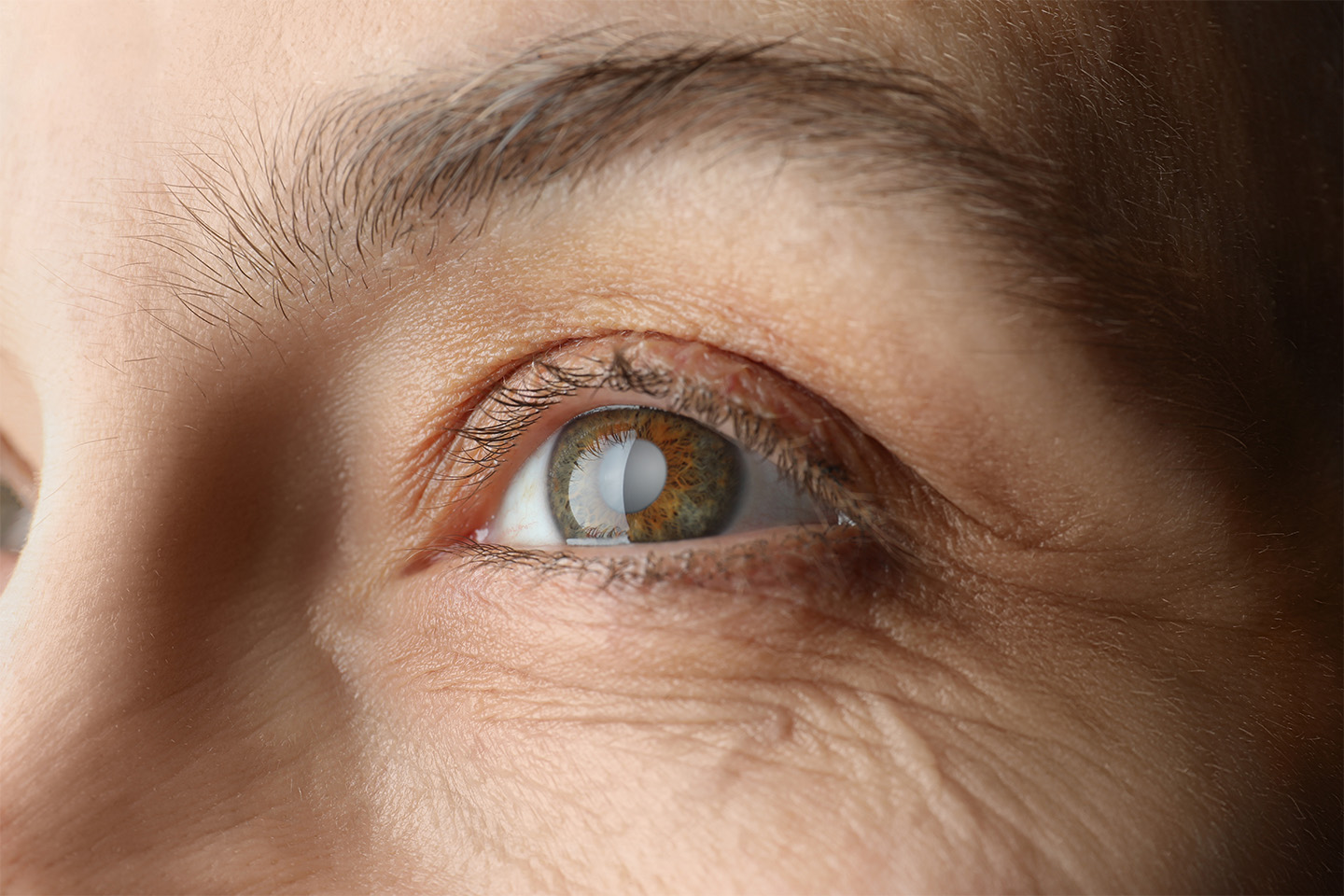Back to School with LASIK

Welcome back to college! As you prepare for the school year, you need school supplies such as pens and pencils, loose paper and notebooks, books and clothing. You also need to check your eyes as clear vision is an essential tool for learning. Because a child’s eyes and a child’s vision will change as they grow, the American Optometric Association recommends that people should be at least 18 years of age and wear contact lenses or eyeglasses before considering LASIK vision correction.
If you are experiencing blurry vision, nearsightedness, farsightedness, or if you have been diagnosed with astigmatism, you may be a candidate for a LASIK procedure. It’s important to contact your eye doctor for an eye exam and to discuss options for clearer vision.
What Is LASIK?
When considering LASIK surgery (laser in-situ keratomileusis or Laser Vision Correction), be sure to get the facts. LASIK is laser eye surgery performed by an ophthalmologist using an advanced surgical laser to reshape the cornea to correct or improve nearsightedness, farsightedness and astigmatism. The goal is to improve the patient’s visual acuity and to eliminate the need for glasses or contact lenses.
The cornea is the clear covering over the iris and pupil. The LASIK surgeon will use a highly specialized laser to create a thin flap in the cornea, which is then folded back so the surgeon can reshape the stroma layer, ensuring light entering the eye focuses more accurately on the retina. The procedure usually takes around 5-10 minutes to complete but requires a few days to recover. A post-op exam needs to be completed the day after the surgery.
How LASIK Helps College Students
![]()
LASIK can eliminate the need for glasses and contacts, which can greatly simplify the college experience.
College students often spend long hours studying, researching online, reading textbooks, and cramming for exams. These activities can cause eye strain resulting in red eyes, dry eyes, and even simple discomfort which can affect the quality of your schoolwork. If you wear contact lenses, these irritating symptoms can distract you from the important school tasks at hand.
Contact lenses require diligent maintenance routines. They need to be kept as clean as possible in order to avoid infections. Living in close quarters like dorm rooms and shared apartments include shared bathrooms. Dormitory bathrooms and showers are breeding grounds for bacteria that can cause such eye infections such as keratitis (also known as corneal ulcers).
Being a college student, in itself, carries a significant number of distractions. Taking care of any vision problems, including LASIK surgery, will increase productivity and decrease stress.
If you plan to participate in college sports and sporting activities, like baseball, football, track, or golf, your game can be affected by your choice of vision correction. Others enjoy more casual activities with friends like frisbee golf and dodgeball. Breaking your glasses or losing a contact lens in the middle of a game can cause major disruption and a time consuming problem. Being away from home and your primary ophthalmologist when you lose your glasses or contact lenses can be a significant inconvenience and time consuming.
Eliminating the need for glasses and/or contacts will make college life more enjoyable. Here are some of the reasons why LASIK may be the right choice for some students.
1. See Clearly as Soon as You Wake Up
![]()
If you wear glasses or contacts, you already know that first thing in the morning, you will put on your glasses and put in your contacts in order to see clearly. Around 800,000 Americans will get LASIK vision correction this year. Many of those patients talk excitedly about their first time waking up and being able to simply see well without glasses or contacts. They talk about the convenience of going through their daily activities without worrying about vision correction devices.
2. LASIK Vision Correction Saves Money
Many Americans considering LASIK ask, “Is eye surgery for vision correction worth the cost?” In the long term, LASIK can actually save you money! If you currently wear glasses or have contact lenses, consider the costs of replacements over your lifetime. Glasses require replacement costs as well as maintenance care like cleaning cloths and sprays. Contact lenses require replacement costs as well as cases, disinfecting solutions and wetting eye drops. Also, with contact lenses, you have the costs of treatment and recovery from possible bacterial infections.
If you get the LASIK surgery as a college student and young age, you maximize your savings over your lifetime. Paying for a new prescription and glasses every few years or paying more for contacts and contact lens maintenance supplies, as well as annual eye exams, will exceed the one time cost of LASIK in just a few years.
3. Avoid Contact Lens Discomfort
![]()
One of the most commonly listed complaints of contact lens wearers in the U.S. is discomfort. There are a multitude of different symptoms. These include:
- Itching
- Burning
- Stinging
- Sensitivity to light
- Watering
- Blurry vision
- Redness (and more)
These symptoms can be mild from environmental issues like smoke or dust particulates, or something more serious like a bacterial infection or corneal ulcer. By the time you are about 18 years old, eye physicians will validate that your eyes have stopped growing, allowing corrective vision surgery to become an option. Consult your eye care professional to see if LASIK is right for you.
Between 80% and 90% of contact lens related eye infections are bacterial. Many of those infections are caused by a common and tough-to-treat bacteria known as Staphylococcus Aureus but the most severe can turn out to be Pseudomonas Aeruginosa. These fast-growing bacteria can leave a hole in your cornea. Sharing dorm rooms, showers and bathrooms are a good way to pick up such unwanted bacteria. LASIK eliminates the worry of a serious eye infection due to contaminated contact lenses.
4. Eases Eye Fatigue
![]()
College students spend a great deal of time staring at computer screens, many times with poor lighting. Research has shown that as little as two hours working on a computer screen can cause eye strain and that’s without glasses or contacts. Prescription glasses and contact lenses will take an extra toll causing eye fatigue and loss of concentration.
Eye care professionals recommend the 20-20-20 rule when working with computers. Every 20 minutes, take a 20 second break and look at something 20 feet away to ease eye strain before it begins.
5. Saves Time
Some may consider a few minutes per day a trivial matter, but the time does add up. The average person putting in contact lenses spends 10 to 12 minutes each day managing that process. Those who have glasses will lose them, misplace them, or break them. That time searching for and replacing glasses that are broken is time you’re not studying or completing other tasks.
6. Don’t Worry About How Close or Far to the Board
![]()
When you have vision problems, you work to choose that “right position” in a classroom setting so you can see the board and follow along with the lesson. With LASIK, the distance from the material at the front of the room will no longer affect your vision. LASIK eliminates the worry of farsightedness or nearsightedness. LASIK allows the eye to focus easily and naturally by itself without any external accessories like glasses or contact lenses.
The Benefits of LASIK
![]()
There are several excellent reasons why LASIK may be a good choice for a college student.
1. Quick Recovery Time with LASIK Surgery
LASIK surgery is almost always a quick outpatient procedure. After the procedure, the patient will recover at home for two to three hours (barring the rare complications). It usually takes 6 to 12 hours to recover well enough to drive or do other non-strenuous activities.
Most patients will see clearly after 24 hours. A small percentage will need another 2 to 5 days to recover. As with any other invasive procedure, consult your refractive error eye surgeon to know what to expect in your individual case.
2. Little To No Pain from LASIK
LASIK surgery does not hurt. Just before the procedure, the LASIK surgeon will administer numbing eye drops into the eye. There may be a little pressure felt during the surgery, but there shouldn’t be any pain. Patients receive eye drops for post operative application. LASIK is virtually painless.
3. LASIK Offers a Long Term Solution for Vision Problems
![]()
LASIK eye surgery is a permanent fix for most vision concerns, meaning no more glasses or contacts. No more reaching blindly for those glasses that “were there just a minute ago”. No more searching for the contact lens you just dropped. No more worrying about glasses that fog up during strenuous activities like sports and recreation. No more walking from inside an air conditioned building to outside in the heat of summer, instantly fogging your glasses. LASIK provides convenience in myriad ways in all kinds of situations.
While laser vision correction surgery lasts a lifetime, LASIK does not prevent other age-related vision problems. Less than 3% of LASIK patients may have some change to their long distance vision through their 20’s but that is not the norm. Having said that, as people age into their 40’s, the natural lens inside our eyes can begin to change. This can be diagnosed as presbyopia. This simply describes the way your natural lens can change over time. It usually begins in a person’s early 40’s. The crystalline structure begins to cloud over, making reading and short range vision more difficult. These common complaints can be managed by your eye doctor.
Find Out If You’re a LASIK Candidate
![]()
Not everyone is a candidate for LASIK surgery. Your ophthalmologist can determine the best course of treatment for any vision problems you may be experiencing.
Unstable vision is one such disqualifier. To be a viable LASIK patient, your vision needs to have remained unchanged for at least a year. The FDA requires LASIK patients to be at least 18 years of age for that very reason and many eye doctors like to wait until the patient is in their mid 20’s before recommending laser vision correction.
Other problems such as dry eye, a previous eye injury, or an infection can rule out a LASIK procedure.
Pregnancy and hormonal changes can affect vision either temporarily or permanently. For this reason, LASIK must wait if you are pregnant or planning to become so.
Good luck to you in the coming school year! Contact your eye care professional at ICON Eyecare in the Front Range if you think LASIK vision correction may be an option to improve your college experience.
[DISPLAY_ULTIMATE_SOCIAL_ICONS]








